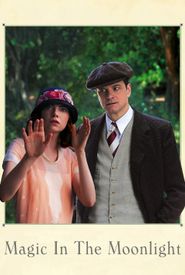Born on December 28, 1898, in the culturally rich city of Bialystok, Russia, Mischa Spoliansky would go on to become a renowned and celebrated composer, leaving an indelible mark on the world of music.
As the tumultuous Revolution of 1905 rocked the very foundations of Russian society, Mischa, accompanied by his family, was compelled to abandon the only life he had ever known, and set out on a perilous journey to distant shores. The departure from his homeland, a place that had been the sole context of his existence, was a traumatic event that would forever alter the trajectory of his life.
Born into a family with a rich musical heritage, Mischa was fortunate enough to inherit a natural inclination towards the world of music, courtesy of his father's profession as an opera singer. This innate talent would ultimately play a pivotal role in defining the trajectory of his life.
The illustrious Spoliansky, after completing his formal education in music, plunged headfirst into the vibrant and eclectic theatrical and cabaret scene of Weimar Berlin, quickly establishing himself as a virtuosic composer of popular musical revues, thereby distinguishing himself as a more carefree and effervescent counterpart to the renowned Kurt Weill, whose own contributions to the genre were marked by a sense of gravitas and intensity.
Throughout the extensive and illustrious duration of his professional tenure, the multifaceted individual in question, Spoliansky, had the distinguished privilege of collaborating with an impressive array of renowned and esteemed figures in the theatrical realm, including the illustrious and highly respected director, Max Reinhardt, whose mastery of the craft is still widely acknowledged and celebrated today, and the captivating and mesmerizing actress, Marlene Dietrich, whose enchanting presence on stage and screen continues to captivate audiences to this very day.
The composer's extensive repertoire included a wide range of musical compositions, with one of his most notable and enduring works being "Zwei Krawatten", a piece that has stood the test of time and continues to be celebrated for its innovative and captivating essence.
As a testament to his remarkable talent and versatility, "Zwei Krawatten" was successfully adapted into a film in 1930, further solidifying his reputation as a masterful composer capable of transcending genres and mediums.
This remarkable achievement not only showcased his ability to create music that resonates with audiences across different platforms but also demonstrated his capacity to push boundaries and experiment with new ideas, ultimately leaving a lasting impact on the world of music and beyond.
Notably, Spoliansky's notable presence as the Piano Man in the 1931 cinematic production "Nie wieder Liebe" exemplified his remarkable adaptability as a performer, leaving a lasting impression on audiences.
In the year 1933, the renowned composer, Spoliansky, made the monumental decision to relocate his family to the United Kingdom, a pivotal move that would have a profound and lasting impact on his illustrious career. Upon his arrival in England, he received a prestigious commission from the esteemed film-maker, Alexander Korda, who was affiliated with the prominent London Films production company, to compose the original scores for not one, but two notable films.
These two films were "Sanders of the River", which premiered in 1935, and "The Ghost Goes West", also released in 1935. Interestingly, "Sanders of the River" went on to win the prestigious prize for Best Music at the renowned Venice Film Festival. This remarkable achievement served as a testament to Spoliansky's exceptional talent and his ability to craft scores that resonated with audiences.
Over the course of his remarkable 40-year career in England, Spoliansky would go on to compose the scores for an impressive total of over 50 movies. His extensive filmography would include the original scores for "King Solomon's Mines", a 1937 release, as well as Otto Preminger's 1957 production of "Saint Joan".
Notwithstanding his remarkable talent, Spoliansky's compositional output was frequently bespoke to the cinematic medium, potentially limiting his widespread recognition, as his primary focus lay in crafting scores for comedies, which, although undeniably entertaining, may not have garnered the same level of acclaim as scores for more dramatic films.
In stark contrast, esteemed British composers of note, such as the illustrious Benjamin Britten, whose contributions to the world of classical music are still widely revered today, and the renowned William Walton, who is celebrated for his iconic scores for films such as "Henry V" and "The Battle of Britain", habitually lent their expertise to the creation of scores for more prestigious and dramatic films, thus solidifying their places in the pantheon of great film composers.
These distinguished composers, with their reputations already firmly established in the world of classical music, were able to bring a level of sophistication and artistic merit to their film scores that was unmatched by many of their contemporaries, including Spoliansky, whose work, although undeniably charming, may have been somewhat overshadowed by the more dramatic and complex scores created by these esteemed colleagues.
Despite his remarkable talent, Spoliansky's decision to focus primarily on crafting scores for comedies may have limited his exposure to a broader audience, and thus, his recognition as a major figure in the world of film music may have been somewhat diminished as a result.
The creative output of this individual, a renowned composer, did not begin to demonstrate a marked shift towards more serious and dramatic undertakings until the culmination of his artistic endeavors, specifically his final composition, the haunting and emotionally charged "Hitler: The Last Ten Days", which was released in the year 1973.
Mischa Spoliansky's life journey came to a peaceful end on June 28, 1985, in the iconic city of London, England, his passing a natural consequence of the human experience. Despite his physical departure from this world, his impressive artistic legacy has undergone a remarkable resurgence in popularity over the years. One of his most notable accomplishments, the 1931 musical comedy "Send for Mr Plim", experienced a revitalization at the esteemed Battersea Arts Centre in 1999, garnering widespread critical acclaim from audiences and critics alike. This renewed interest in his work led to subsequent restagings across Europe, including a production at the prestigious Covent Garden Festival in the year 2000 and a 2001 radio broadcast on the esteemed BBC Radio 3, further cementing his status as a pioneering figure in the world of music and entertainment.
Person Biography:
Mischa Spoliansky (1898-1985) was a Russian-born British composer, songwriter, and musicologist. Born in St. Petersburg, Russia, he moved to the United Kingdom in the early 1920s and quickly established himself as a prominent figure in the British music scene. Throughout his career, Spoliansky composed music for various genres, including films, musicals, and operas. He is perhaps best known for his work on the 1931 musical comedy "Send for Mr Plim", which has been revived several times over the years. Spoliansky's music has been praised for its unique blend of wit, charm, and sophistication, and he remains a beloved figure in the world of British music and entertainment.
Irmgard Spoliansky, the daughter of renowned composer and songwriter, Paul Spoliansky, has undertaken the esteemed task of editing an autobiography penned by her father, a literary endeavor that is slated for publication in Germany during the calendar year 2004.
















